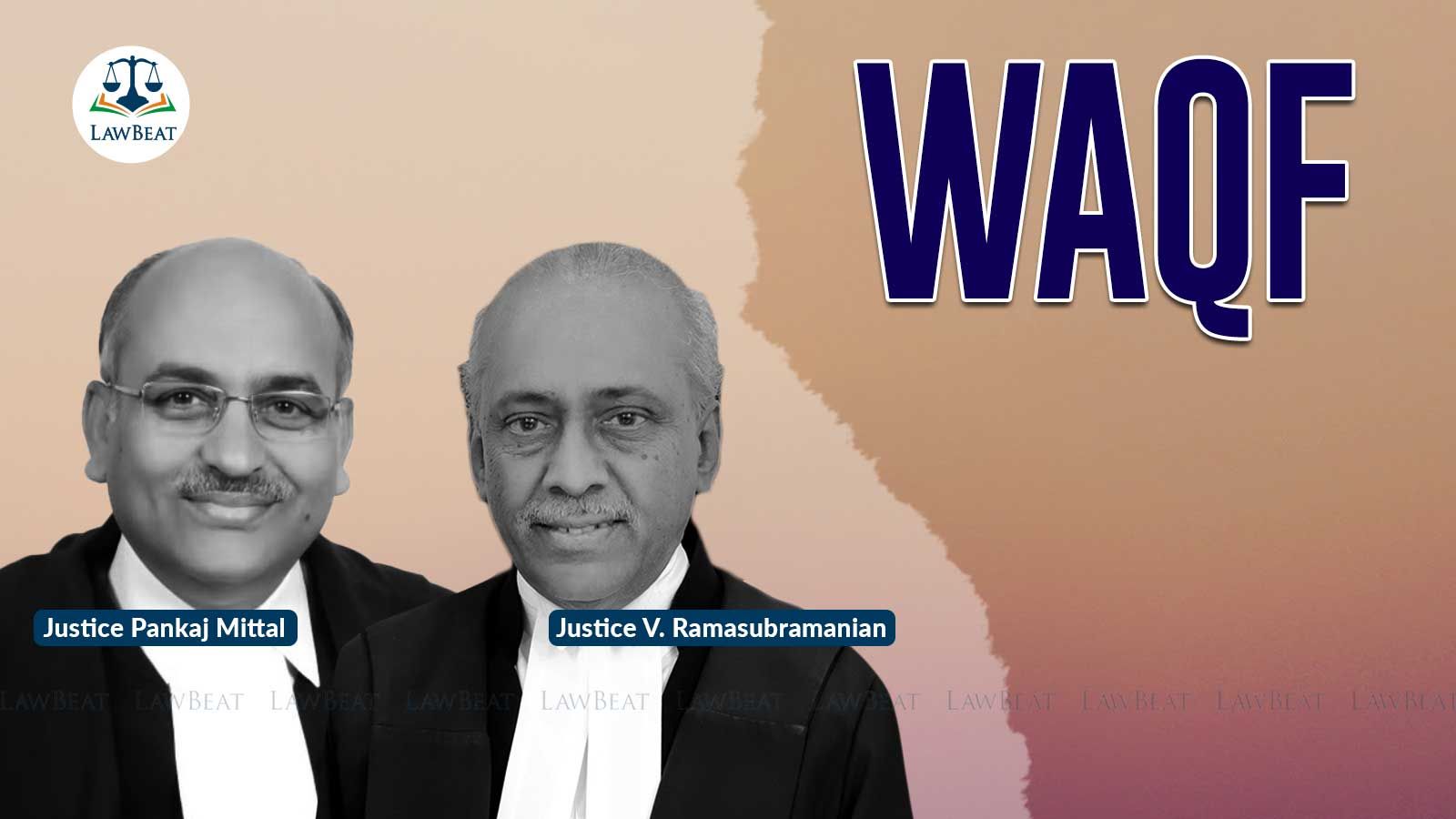Wakfs to be recognised only after statutory process: SC

Court rejected the claim on a land as a burial ground in Tamil Nadu.
The Supreme Court has said that in the absence of any express dedication, the creation of a wakf can be determined from the facts and circumstances of each case, including the long usage of the property for religious and public charitable purposes.
A bench of Justices V Ramasubramanian and Pankaj Mithal also explained that the list of the wakfs should only be published after completion of the statutory process, that is, two surveys, settlement of disputes, and the submission of the report to the State Government and to the Wakf Board. Mere publication of a notification was not enough to recognise a property as wakf.
"Under the Muslim law, a wakf can be created in several ways but primarily by the permanent dedication of any movable and immovable property by a person professing Islam for any purpose recognised by Muslim law as the pious, religious or charitable purpose and in the absence of such dedication, it can be presumed to have come into existence by long use," the bench said.
The apex court dismissed an appeal filed by Salem Muslim Burial Ground Protection Committee against the Madras High Court's decision rejecting their claim over a suit land, on the ground that it was used as a burial ground and once a wakf would always remain a wakf.
"Ordinarily, a wakf is brought into existence by any express dedication of movable or immovable property for religious or charitable purpose as recognised by Muslim Law. Once such a dedication is made, the property sought to be dedicated gets divested from the wakif, i.e., the person creating or dedicating it and vests in the Almighty Allah. The wakf so created acquires a permanent nature and cannot be revoked or rescinded subsequently. The property of the wakf is unalienable and cannot be sold or transferred for private purpose," the bench said.
In the case at hand, the bench said, there was no iota of evidence from the very inception as to any express dedication of the suit land for any pious, religious or charitable purpose by anyone professing Islam. Therefore, on the admitted facts, the wakf by the dedication of the suit land was ruled out.
The court also found that the suit land was not proved to be a wakf land by long usage also.
"There is even no concrete evidence on record to prove that the suit land prior to the year 1900 or 1867 was actually being used as a burial ground (kabristan). Therefore, the alleged use of the suit land as burial ground prior to 1900 or 1867 is not sufficient to establish a wakf by user in the absence of evidence to show that it was so used. Thus, it cannot constitute a wakf by user also," the bench said.
With regard to the argument that the suit land has been declared to be a wakf property by a notification of April 29, 1959, the bench said it has to be noted that such a declaration has to be in consonance with the provisions of the Wakf Act, 1954 or the Waqf Act, 1995 and mere issuance of notification was not sufficient for the purpose.
"A plain reading of the provisions of the above two Acts would reveal that the notification under Section 5 of both the Acts declaring the list of the wakfs shall only be published after completion of the process as laid down under Section 4 of the above Acts, which provides for two surveys, settlement of disputes arising thereto and the submission of the report to the State Government and to the Board. Therefore, conducting of the surveys before declaring a property a wakf property is a sine qua non. In the case at hand, there is no material or evidence on record that before issuing notification under Section 5 of the Wakf Act, 1954, any procedure or the survey was conducted as contemplated by Section 4 of the Act," the bench said.
The court also said Wakf Board is a statutory authority under the Wakf Act. Therefore, the official Gazette is bound to carry any notification at the instance of the Wakf Board but nonetheless, the State Government is not bound by such a publication of the notification in the official Gazette merely for the reason that it has been so published.
It cited 2022 judgment in the case of 'State of Andhra Pradesh Vs A P State Wakf Board and Ors', to emphasise that the notification, if any, published in the official Gazette at the behest of the Wakf Act giving the lists of the wakfs is not a conclusive proof that a particular property is a wakf property especially, when no procedure as prescribed under Section 4 of the Wakf Act has been followed.
"We do not find any substance in the argument that the suit land is or was a wakf property and as such would continue to be a wakf always. In the absence of any evidence of valid creation of a wakf in respect of the suit property, it cannot be recognised as a wakf so as to allow it to be continued as a wakf property irrespective of its use or disuse as a burial ground," the bench said.
The court said that in the present case, the appellant committee participated in the subsequent proceedings after the HC's judgment before the Director of Survey and Settlement and the Board of Revenue and thus got itself disentitled from raising any objection in this regard at such a belated stage for the first time.
Case Title: Salem Muslim Burial Ground Protection Committee vs. State of Tamil Nadu And Ors.
Statute: Waqf Act
